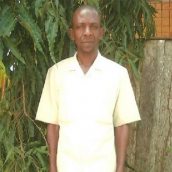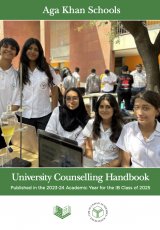Participants of the AKA Outreach Programmes
Said Mwabeha: Sparking a Light in Students by Transforming School Leadership
Said Mwabeha became a teacher in 1990. He was drawn to the profession because it provided an opportunity to positively impact a range of people. “Almost everyone on earth,” he explains, “be it a president, be it a doctor, be it an engineer—all of them pass through a teacher. So, to me, a teacher is a very important person.”
Mwabeha aspires to spark a light in others through his teaching and says the Professional Development Centre at the Aga Khan Academy in Mombasa has enhanced his ability to do so. As the Head of Vuga Primary School in the coastal area of Kenya, Mwabeha attended a course focused on Leadership Management at the Academy.
“It really transformed me,” Mwabeha says of the course, which dealt with how Heads of School could make better use of their resources to enhance academic performance. While he previously undertook initiatives to improve the school as a “one-man shop”, he now takes an integrated approach to solving problems that involves a range of teachers, parents and students.
The Academy’s programme also spurred the creation of an association of teachers in Kwale County, where Vuga Primary is located, at the end of 2012. As Chair of Kwale Educational Leaders' Association, Mwabeha is leading teachers from 23 schools in formulating a strategic roster of activities to strengthen their academic performance. Their strategy is two-pronged. On the one hand, they plan to undertake workshops and other initiatives to improve pedagogy. On the other, they are organising awareness meetings and conferences for parents and teachers to discuss the importance of education. They hope to overcome the challenges and problems created by families that do not prioritise education.
Meanwhile, inside the classroom, Mwabeha is working hard to spark intellectual curiosity in his pupils. After receiving training in pedagogy at the Academy, he has promoted the use of more participatory teaching methods, both in his own classroom—where he teaches Social Studies and Religion courses to students in grades 4, 6 and 8—and in those of his colleagues. “It gives [the students] an opportunity to explore more and to discover more by themselves,” he explains. He previously spent the majority of classroom time lecturing, as is common in Kenya, but finds that facilitating class discussions is more fruitful.
By Alia Dharssi





